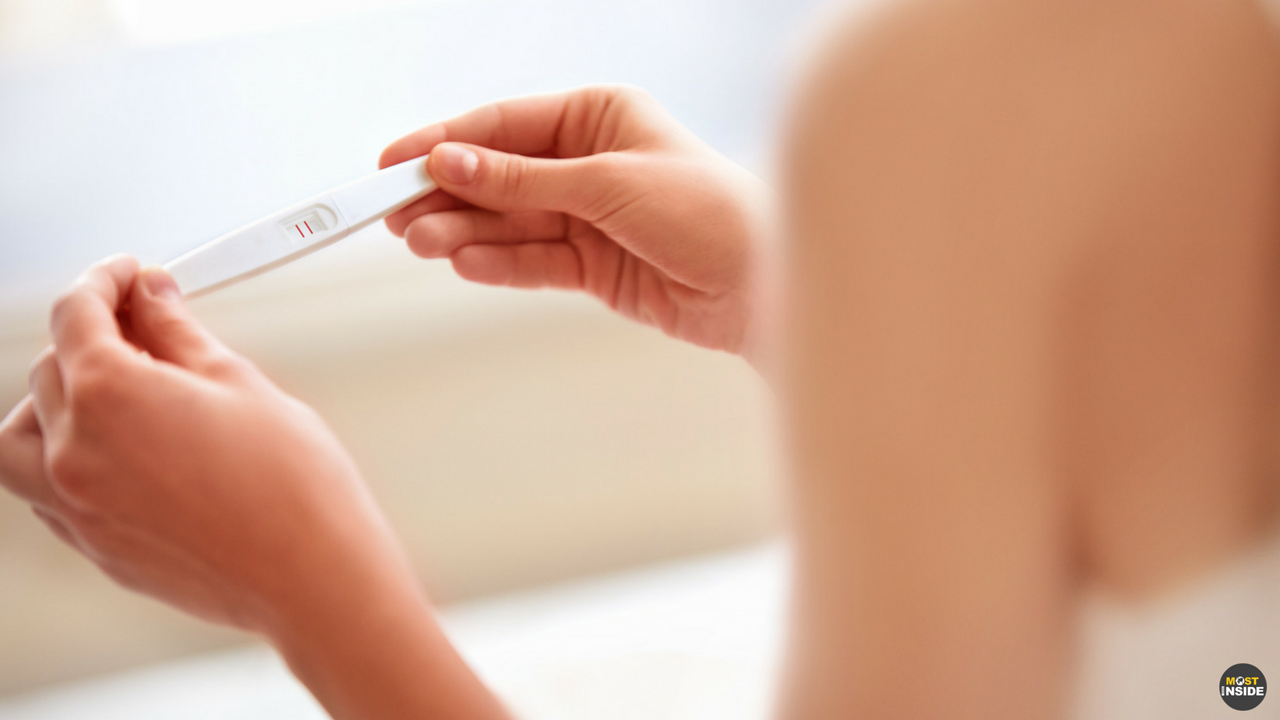Understanding The Right Time To Get A Pregnancy Test Done
This post was last updated on November 17th, 2023

Pregnancy calls in the beginning of a new phase in a woman’s life and it is one of the biggest decisions that she has to take. A woman can conceive during the ovulation period while keeping a track of her periods, but it may take few months or even a year to get pregnant. For many women, taking a pregnancy test is a big decision that involves lots of anxiety during the waiting period of two weeks. Being a woman, you may be very excited to know if this is the month when you will get positive test results. Even before your period is late, you may feel the urge to take the test by experiencing some of the early signs of pregnancy.
But, do you know that despite being pregnant your test results may turn out negative? Then, how can one actually decide how much to resist before using the pregnancy test kit? However, the best time to get a pregnancy test done is after your periods are late. This will aid in eliminating the chances of false negatives and false positives of miscarriages at quite early stage. In case you are not maintaining a fertility calendar, then to find out the proper pregnancy test timing, you need to start keeping one now.
Also, if you are facing irregular cycles or don’t keep a record of your cycles, abstain from taking a pregnancy test unless and until you have passed the longest cycle of menstruation that you usually have. For instance, if your period cycles range from 30 to 36 days, then the best time to take a pregnancy test is after the 37th day. What else that needs to be taken into account is whether your period even late. Studies reveal that out of every 100 women, around 10 to 20 will get negative pregnancy test results on the day they assume that they have missed their periods, even when they are actually pregnant. Even test kits that are labelled to detect early pregnancy fail to detect pregnancy before you miss your period.
Contents
ToggleUnderstand The Working Of Pregnancy Tests
Having knowledge of how these tests work can help you know when to take them. The tests are meant to detect the presence of human chorionic gonadotropin (hCG), a pregnancy hormone in the urine. Some tests also detect a different variant of the pregnancy hormone called the hyperglycosylated hCG (H-hCG). The regular hCG gets produced after an embryo is implanted inside the endometrium. The H-hCG gets released earlier but some time after the process of fertilisation.
The pregnancy tests are designed to let you know how much hCG is required for the test and a woman’s level of H-hCG is generally higher than hCG. This is why, when a pregnancy test detects H-hCG, then you are more likely to see the result as positive at an early stage. However, if a pregnancy test isn’t sensitive to H-hCG and detects only the presence of hCG, then you may face negative results in early stage. Moreover, the fact is that a large number of pregnancy tests available in the market aren’t capable of detecting H-hCG.
How Early Result Pregnancy Tests Work?
Early result pregnancy tests are designed to provide results three to four days before you miss your period. These tests consider a 14 day luteal phase, which is the time gap between ovulation and the day when you are supposed to get periods. The problem that persists here is that you may have a shorter or longer luteal phase. In case your luteal phase is 12 days, then taking test four days before your missed period, which is nine days after ovulation, would be rather meaningless as it is too early to test. However, if you have a luteal phase of 15 days and taking test four days before your missed period, which is 12 days after ovulation, then still the test may not be positive due to insufficient production of the pregnancy hormone at such early stage.
Recommended: 8 Early Signs of Pregnancy You Need to Know
Clearing The Ambiguity Associated With The 99 Percent Accuracy Of Results
Upon reading the instructions carefully, you will see that the pregnancy test kits promise 99 percent accuracy on the day of your missed period and not for tests taken early. In case you are expecting your period on Monday, then Tuesday would be the day when you missed period. But the claim of providing 99 percent accurate results is not always true. Various research studies have found that when the comparison between how much hCG the tests claim to detect and how they can actually detect, it was revealed that the tests were only 46 percent to 89 percent accurate. As per one study, pregnancy tests showed positive results only 80 percent of times when a woman is on the 28th day of her menstrual cycle.
Merits & Demerits Of Taking An Early Pregnancy Test
Merits
- Less chances of getting positive result and no relief from the two week wait stress.
Demerits
- High chances of getting false negative results.
- Getting disappointed upon viewing negative results.
- Waste of money
- If the result is positive, then you may have suffered from an undetected early miscarriage, if test wasn’t taken early.
Recommended: Ovulation in Women – Ovulation Symptoms That Aren’t Good Signs
Recommended For You
Diet and Fitness Regime of Mrunal Thakur – Secrets Revealed
Snehashree Bhat
A young writer who loves to pen words from creative perspective. Passionate internet surfer, a versatile homemaker and a person who finds pleasure in adopting healthier and positive changes in her persona. An enthusiastic feminist who wishes to make serious changes in the stereotypical thought process of the society via the voice of her words.




